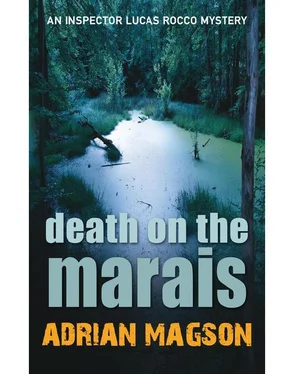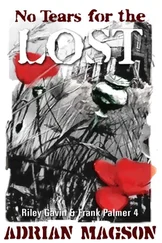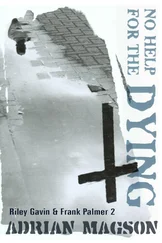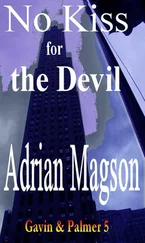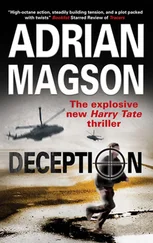Adrian Magson - Death on the Marais
Здесь есть возможность читать онлайн «Adrian Magson - Death on the Marais» весь текст электронной книги совершенно бесплатно (целиком полную версию без сокращений). В некоторых случаях можно слушать аудио, скачать через торрент в формате fb2 и присутствует краткое содержание. Жанр: Полицейский детектив, на английском языке. Описание произведения, (предисловие) а так же отзывы посетителей доступны на портале библиотеки ЛибКат.
- Название:Death on the Marais
- Автор:
- Жанр:
- Год:неизвестен
- ISBN:нет данных
- Рейтинг книги:3 / 5. Голосов: 1
-
Избранное:Добавить в избранное
- Отзывы:
-
Ваша оценка:
- 60
- 1
- 2
- 3
- 4
- 5
Death on the Marais: краткое содержание, описание и аннотация
Предлагаем к чтению аннотацию, описание, краткое содержание или предисловие (зависит от того, что написал сам автор книги «Death on the Marais»). Если вы не нашли необходимую информацию о книге — напишите в комментариях, мы постараемся отыскать её.
Death on the Marais — читать онлайн бесплатно полную книгу (весь текст) целиком
Ниже представлен текст книги, разбитый по страницам. Система сохранения места последней прочитанной страницы, позволяет с удобством читать онлайн бесплатно книгу «Death on the Marais», без необходимости каждый раз заново искать на чём Вы остановились. Поставьте закладку, и сможете в любой момент перейти на страницу, на которой закончили чтение.
Интервал:
Закладка:
He spoke quickly. ‘I know Philippe Bayer-Berbier passed through the Poitiers area during the war sometime in 1944. He was on a re-supply trip, delivering essential funds and other material to Resistance groups in the region. He figures in the photo I mentioned — the one with the APP logo on the back.’
‘But not recognisably.’
‘Not in that one, no. But there is another, full face, taken at the same time. It’s definitely him.’
‘Go on.’
‘According to the photographer, Poudric, shortly after the photos were taken, the entire group was caught while holding a meeting one night. The meeting had been called by the SOE agent.’
‘The one you say was Berbier.’
‘Yes. The entire group was shipped to Natzweiler-Struthof. They never came out.’ He paused, then added, ‘Except for Didier Marthe and Philippe Berbier.’
Massin looked at him with narrowed eyes. ‘If I read you right, that’s quite an allegation. You’re saying… what, exactly?’
‘Either Berbier and Marthe must have known what was going to happen and stayed away, or they managed to talk their way out. Since neither of them was ever seen in the area again, and I’ve never heard of the Germans doing deals, I’m leaning towards the former. They simply stayed away and moved on. It’s the only explanation.’
‘But why?’ Massin looked perplexed. ‘What would bring two men like this together? They had nothing in common except for the fight against the Germans. That alone might bring them into contact on the battlefield, but nothing more. Do you have an ounce of proof to back this up, such as a meeting or an exchange of correspondence?’
Rocco took a deep breath. The only proof he had was currently on the run, wounded, resentful and unlikely to give him the spit off his tongue, let alone information. He had a theory, but he was still working on it. Neither would be enough for Massin to take this any further forward.
Massin read his face. ‘I see. So what do you have?’
‘I’m waiting for a piece of information which I think will tie it all together.’ A domino effect, he wanted to add, but wasn’t sure Massin would believe him. He wasn’t sure he believed it himself.
Massin opened his mouth to speak, but was interrupted by a knock at the door. He stood up and opened it to find Desmoulins standing there holding a piece of paper and trying to hold back a grin.
‘Note for Inspector Rocco, sir.’
Massin took the paper, closed the door again and handed it to Rocco without looking at it.
‘You must try not to use members of staff here as your own private detection unit,’ he said dryly. ‘Is that by any chance the information you’ve been waiting for?’
Rocco looked down at the piece of paper and saw two names. One dead, the other alive. He felt a kick of something low down in his stomach, but wasn’t sure whether it was elation or something less welcome.
‘It is. May I go?’
Massin nodded and waved a hand. ‘Do. But if this falls flat, I suggest you enlist in the Foreign Legion. They’re always looking for men with self-destructive tendencies.’
Back at the hospital, this time with Claude alongside him, Rocco stepped into Francine’s room and waited for her to sense his presence, as he knew she would. She turned her head, and he watched with a feeling of disappointment as the uncertainty grew on her face.
He motioned Claude to sit by the window. He’d already warned him to listen and remember, but to show no surprise, make no comment.
‘You again.’ Francine rolled carefully to face him, her face pale.
‘Me again.’ He drew up a chair and sat facing her. He took out the group photo that Poudric had taken and showed it to her. Allowed her to take it from his hand. To study it.
She said nothing as her eyes slid across the faces. There was no reaction, no sign of recognition.
She shrugged. ‘I don’t understand.’ She handed it back to him. Her voice was flat, unemotional, but a pulse was beating in her throat.
‘Really?’ Rocco crossed his legs and tapped the photo on his knee. ‘I think maybe you do. That you understand very well.’ She said nothing, so he continued. ‘The woman in this photo was called Elise. She was born in Poitiers in 1910, and lived in the Rue Colonel Magnon, at number 25. Her parents were Andre, a baker’s assistant, and Claudine, a laundry worker. Elise married once, but her husband was killed in an agricultural accident just before the outbreak of war. She reverted to using her maiden name.’
Still nothing.
‘She was helped by the local union of farm workers — an unofficial group who cared for their own. It was almost unknown here at the time, this kind of little collective. They were probably more politically and socially aware than most, although certainly with no pretensions of moving higher, but happy to be doing what they could. They looked after her, gave her work whenever they could and helped her find a home. Some called them communists.’ Rocco brushed some lint from his knee, keeping his voice level, almost casual. He wanted to see some reaction. ‘Then, when the war came, a few locals joined the Resistance movement: those with certain skills or equipment, who knew how to disrupt, to destroy. Not all with military training, not experts, but passionate enough to feel they had to do something. The people who had helped Elise did the same. But true to form, they had different objectives and formed their own group… an offshoot of what became known as the FTP — the Francs-Tireurs et Partisans. ’
Claude shifted in his chair but said nothing, leaning forward with interest.
‘For Elise, it must have been like repaying a debt, to join their ranks. To even be asked, that was something. What she didn’t know was that the group realised that a woman could, in many ways, be more useful in some situations than a man. A single woman was less suspect, could move more freely; they were less likely to be stopped by patrols, and if they were, could — especially a good-looking woman like Elise — talk their way through.’
Rocco stood up and walked across to the window. He felt her eyes on him all the way. Claude looked as if he was about to speak but Rocco gave a minute shake of his head. ‘One of her colleagues in this fledgling underground group was a man named Tomas Broute. Tomas took a shine to Elise… well, who can blame him? He wasn’t much of a catch: he was born a bastard, had nothing to offer and was quick-tempered and aggressive. Dangerous, even. It didn’t put him off, though. He used to hover around her all the time, hoping to catch her favours. He even began to treat her like his own… no doubt quick to warn others away, even placing a proprietary hand on her whenever the situation presented itself.’ He turned and flicked the photo onto the bed, just like he had done with Didier.
‘As he did there.’
She didn’t look down. Stared right back at him, her expression blank.
‘In summer 1944, the group was betrayed. The details are a little sketchy, but it seems they were picked up by the Germans one night during a meeting. They were sent to a place no sane person ever wanted to see: a concentration camp called Natzweiler-Struthof. The men, the woman — all of them.’ The clank of a trolley sounded from out in the corridor, and a door thumped, followed by the squeak of soles on tiles. ‘None was ever seen again. Until recently.’
Francine’s eyes had closed. And suddenly Rocco felt sorry for her; for the memories he was releasing, for the realisation that more was known than she could possibly have imagined ever would be. But he forged on. He had to.
‘The man named Tomas had a second name: Didier. His surname was Broute, after his mother. He probably didn’t care much for it — couldn’t do, anyway, because people would have remembered it too easily. You’re probably ahead of me here.’
Читать дальшеИнтервал:
Закладка:
Похожие книги на «Death on the Marais»
Представляем Вашему вниманию похожие книги на «Death on the Marais» списком для выбора. Мы отобрали схожую по названию и смыслу литературу в надежде предоставить читателям больше вариантов отыскать новые, интересные, ещё непрочитанные произведения.
Обсуждение, отзывы о книге «Death on the Marais» и просто собственные мнения читателей. Оставьте ваши комментарии, напишите, что Вы думаете о произведении, его смысле или главных героях. Укажите что конкретно понравилось, а что нет, и почему Вы так считаете.
